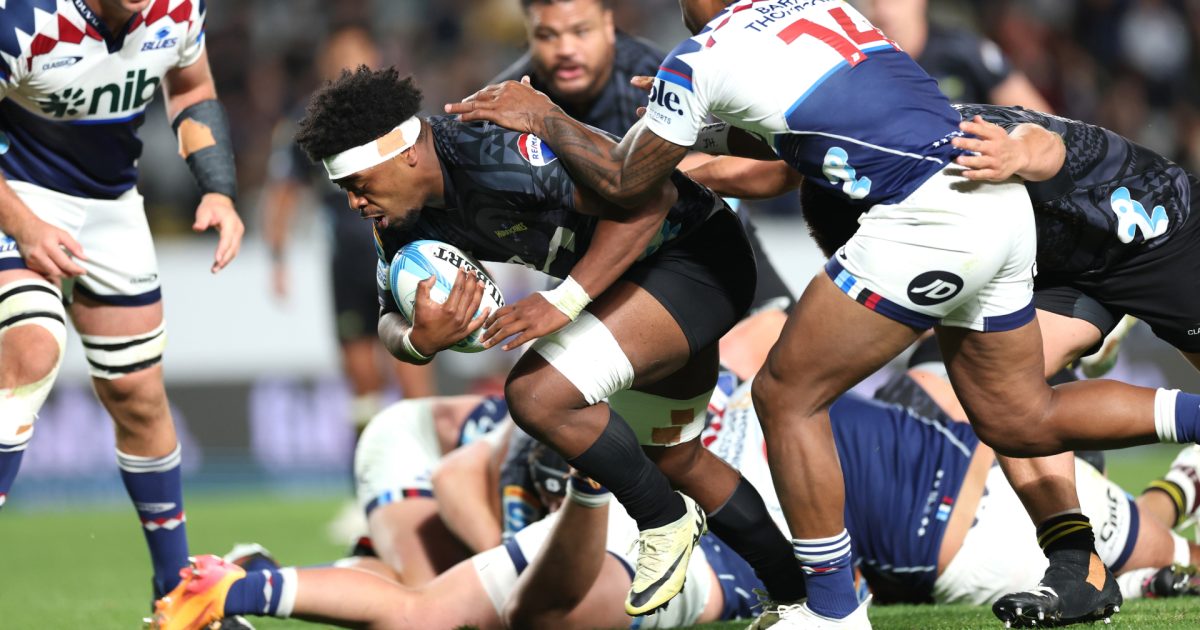What makes the Blues and Hurricanes ‘benchmark’ Super Rugby teams

Former Wallaby Morgan Turinui believes the Blues will go on to win Super Rugby Pacific this season after they overcame the Hurricanes 31-27 on Saturday in a potential preview of what “we’ll see in the final.”
With the top two teams in the competition going head-to-head deep into the regular season, whoever won would not only sit in first place but would go a long way to securing home-field advantage through the playoffs.
The Blues, who had their home crowd cheering them on at Auckland’s Eden Park, shot out of the blocks with Bryce Heem scoring inside the first five minutes to cap off what had been a dominant start from the hosts.
But the Hurricanes hit back through Brad Shields shortly after which set the tone for the enthralling battle. Both teams scored two tries each in both halves with the difference in the end being Harry Plummer’s accuracy off the goal-kicking tee.
The men from the nation’s capital had a chance to steal it at the death but replacement halfback Sam Nock was the hero for the Blues who held on for a four-point win. They’re now first on the ladder with only three games left before finals.
“You don’t say ‘Test match’ … but it was a benchmark Super Rugby match. It’s probably what we’ll see in the final I would’ve thought,” Turinui said on Stan Sports’ Between Two Posts.
“The Canes could have, possibly will think should have won that.
“Look at the quality across the park that played well.
“If you’re any other team in the competition, the other 10 teams even including the Chiefs and the Brumbies, you’re thinking well that’s a level we’re gonna have to get to if we’re going to trouble them.”
There seems to be a bit of daylight between the quartet of the Blues, Hurricanes, ACT Brumbies and Chiefs, and then the rest of the competition, on the back of the stellar work within the forwards.
Not only are their set pieces sound but all four of those teams are scoring tight-range tries. Players are burrowing over from the breakdown to cross for decisive scores week after week.
Panellist Stephen Hoiles, who played for the Wallabies and won a Super Rugby title with the Waratahs, explained in-depth for about a minute the importance of this “precision.”
Then, Turinui echoed those remarks by adding what these top “teams do for 80 minutes” that makes them such a force to be reckoned with in Super Rugby Pacific.
“The detail in the game from both of these teams,” Turinui began to explain. “Everyone’s got their three-man shape with their forward runners, (but) their runners are able to either find a weak shoulder or space but also get to fourth or fifth defender.
“If you’re the first forward and you’re opposite the third defender and you step in because of pressure, you’re not doing anything for your team. It’s just another phase – you don’t make the defenders move at all.
“Their deep clan, so a clean that goes maybe that legal metre past which makes it harder to fold.
“Their work at the attacking breakdown to cut a corner, not run around the tackle contest and not come in from directly behind… all those little things and the breakdown have never bn more important in Super Rugby.”
New tickets for Women’s Rugby World Cup 2025 are now available, with prices starting at £10 for adults and £5 for children. Buy now!












































































